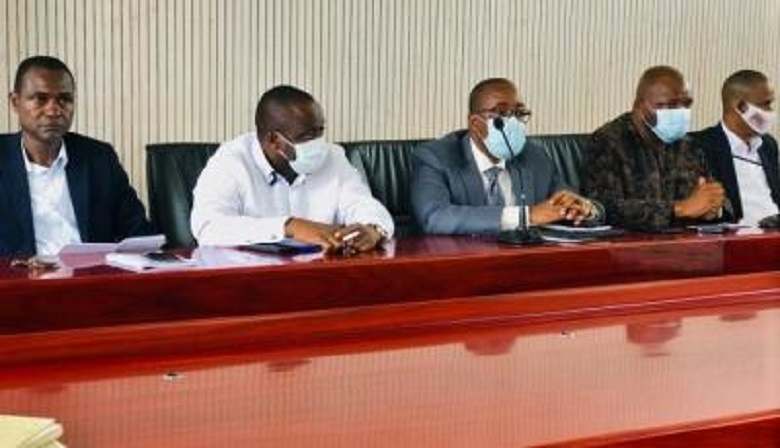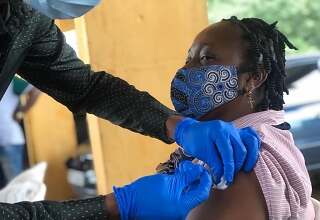
By Mohamed Fofanah.
Chozen Generation in collaboration with the Sierra Leone Reporters Union, and the Citizens Advocacy Network (CAN) on Tuesday held a one-day discussion on cyber-security and Government’s efforts to pass the Cybercrime Act 2020, which is expected to protect “Critical national infrastructure.”
The seminar was part of efforts to amplify digital right, data protection, cyber-security, and internet freedom in Sierra Leone.
Giving the keynote address at SLAJ headquarters in Freetown on Tuesday, the Deputy Minister of Information and Communications said that the Cybercrime bill is part of Government’s efforts to ensuring that the rights of citizens are protected on the internet as much as they are protected offline. He reiterated Government’s commitment to protect the tenets of freedom of expression, and press freedom.
Meanwhile Solomon Jamiru quoted the founder and chief executive of Facebook, Mark Zuckerberg, as carried by the Washington Post in 2019 as saying: “I believe we need a more active role for governments and regulators. By updating the rules for the Internet, we can preserve what’s best about it — the freedom for people to express themselves and for entrepreneurs to build new things — while also protecting society from broader harms.”
However, Dr. Francis Sowa, a Mass Communications and Journalism lecturer at Fourah Bay College, University of Sierra Leone noted that he was concerned about the provisions in the proposed bill that threaten press freedom.
He quoted the Minister of Information and Communications, Mohamed Rahman Swaray as conceding that the proposed bill gives him excessive powers.
During a panel discussion, he supported arguments that there must a data protection bill, and the regulations that enhance international best practice to accompany the Cybercrime bill.
Being part of the four-man panel, Michaella Jane George Esq. opined that Sierra Leone needs the Cybercrime Act despite the bill’s present status which, she said can be perfected since it is yet a bill.
She added that the bill’s present status infringes on certain rights including invasion of privacy, and also threatens people’s rights as much as it protects them.














